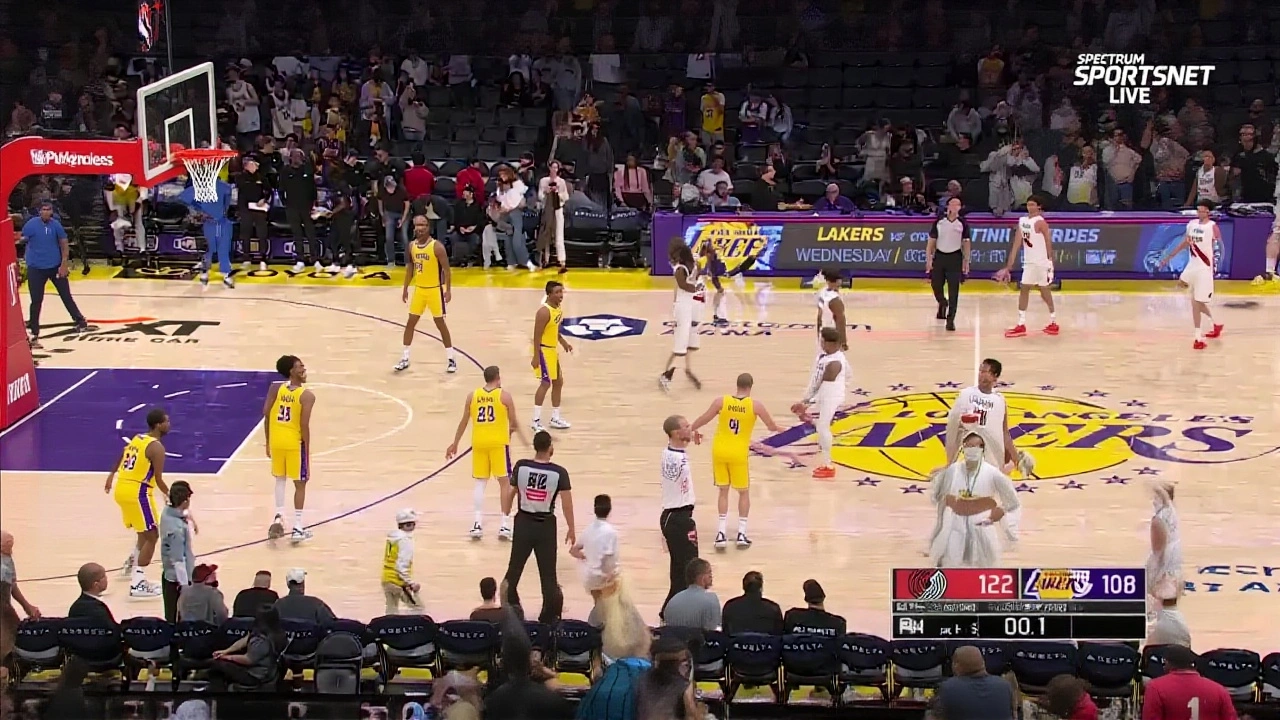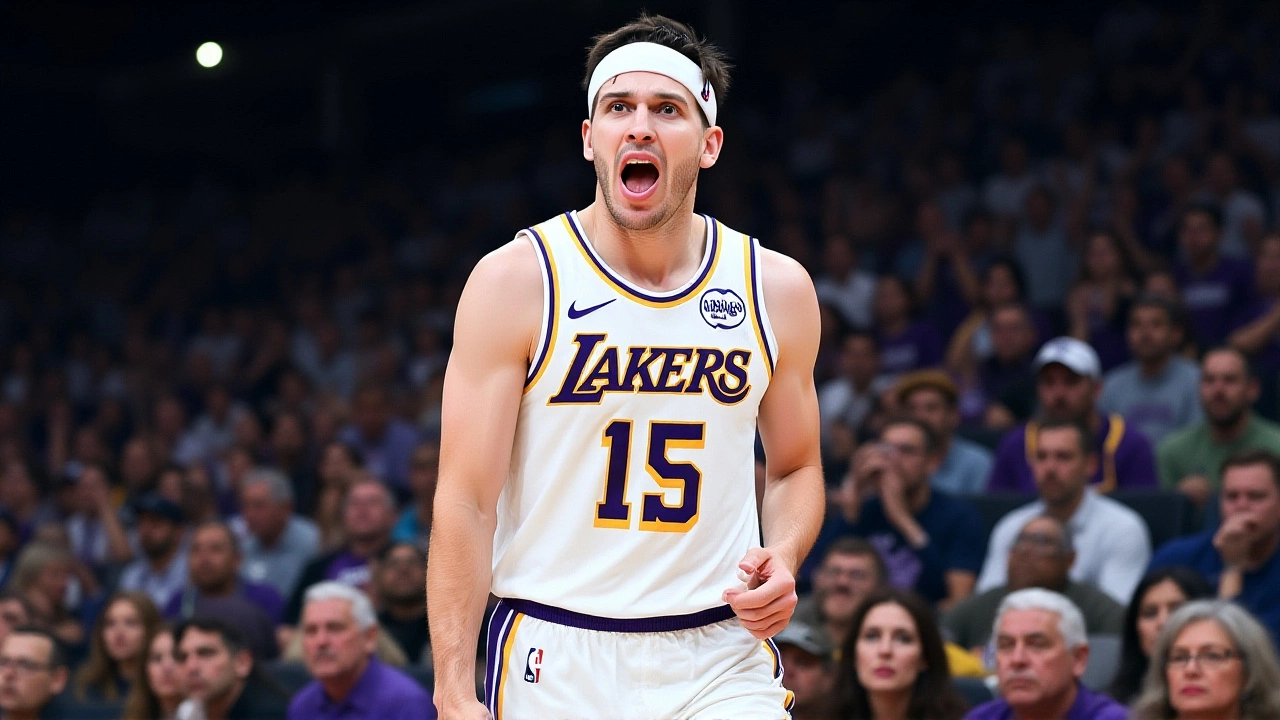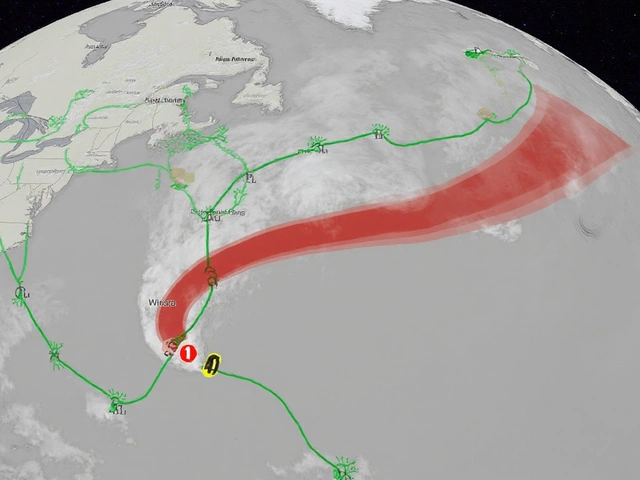
The Portland Trail Blazers didn’t just beat the Los Angeles Lakers on Monday night—they exposed them. A 122-108 victory at Crypto.com Arena in Los Angeles on October 27, 2025, wasn’t just a road win. It was a statement. With LeBron James and Anthony Davis sidelined, the Lakers looked thin, tired, and out of sync. But the Blazers didn’t wait for permission to dominate. They seized control with defensive grit, sharp shooting, and a second-half surge that left the home crowd stunned.
Avdija and Holiday Lead the Charge
Deni Avdija, the 24-year-old Croatian forward, didn’t just play well—he exploded. He dropped a team-high 25 points, hitting five three-pointers with surgical precision. His shooting wasn’t just hot; it was timely. Each bomb came when the Lakers tried to claw back, silencing any momentum. Alongside him, Jrue Holiday, the 35-year-old veteran point guard, delivered a masterclass in poise under pressure. Holiday finished with 24 points, six assists, and five rebounds, but his real impact came after halftime. He orchestrated the offense like a conductor, cutting through the Lakers’ exhausted defense and setting up teammates with calm authority.
Meanwhile, the Lakers’ lone bright spot was Austin Reaves. The 26-year-old shooting guard poured in 41 points—his highest total of the season—adding five assists and four rebounds. He carried the offense with drives, step-backs, and clutch mid-range jumpers. But even his brilliance couldn’t mask the team’s structural flaws. Without James and Davis, the Lakers lacked interior presence, rim protection, and leadership in crunch time.
Defensive Strategy: Pressure, Not Points
Here’s the twist: the Blazers forced 23 turnovers. That’s elite. That’s championship-level disruption. Yet they only scored nine fast break points from them. "How do you get nine out of 25 turnovers, dude?" asked analyst Eric on KATU’s Rip City Wrap-Up. "That’s very strange."
It was strange, yes—but not accidental. Portland’s defense wasn’t built for transition chaos. It was built to suffocate. They targeted the Lakers’ backcourt, especially after the Lakers lost their primary playmaker, LeBron James. With no true point guard on the floor, Portland’s guards, led by Holiday, applied relentless pressure. They forced eight-second violations. They disrupted pick-and-roll sets before they formed. They made the Lakers rush passes into traffic.
The result? Eighteen of the 23 turnovers came in the half-court. The Blazers didn’t need fast breaks. They needed control. And they got it.
Back-to-Back Fatigue and a Hollow Victory
The Lakers were playing the second night of a back-to-back, having lost to the Sacramento Kings the night before. That alone explains some fatigue. But it doesn’t excuse the lack of defensive cohesion or offensive rhythm. Their bench looked lost. Their rotations were slow. Even Reaves’ heroics couldn’t mask the fact that the Lakers were missing their two best players—and their emotional anchors.
"They were doing a really good job of being aggressive," one commentator noted. "Especially in the backcourt. Without a true point guard, they just couldn’t set up their offense."
The Blazers, by contrast, had been building toward this. They’ve forced 20+ turnovers in three of their first four games this season. This wasn’t a fluke. It was a pattern. And now, with this win, they’re tied with the Minnesota Timberwolves for third in the Northwest Division at 2-2. The Oklahoma City Thunder lead at 4-0.

What This Means for the Season
For the Blazers, this was more than a win. It was a psychological shift. They hadn’t won back-to-back games since the 2022-2023 season. Now, with a 2-2 record and momentum on their side, they head into their next game against the Utah Jazz with a real shot at their first winning record in nearly three years. That’s not just a milestone—it’s a statement to the rest of the Western Conference that Portland isn’t rebuilding. They’re re-emerging.
For the Lakers? It’s a warning. They’re 2-2, but they’re not close to being a contender without James and Davis. The league is deeper than ever. One night off from your stars, and you’re exposed. Reaves’ 41 points? Impressive. But not sustainable. Not against teams that can match their intensity.
Historical Context: A New Era in Portland
The Portland Trail Blazers have called the Moda Center home since 1995. But for years, they’ve been stuck in mediocrity. Playoff appearances were rare. Draft picks were wasted. Fan interest waned. This season, under new coach Chauncey Billups, there’s a new energy. The roster is younger. The defense is aggressive. The culture is changing.
Meanwhile, the Los Angeles Lakers—still drawing crowds to the Crypto.com Arena—are facing a quiet reckoning. Their stars are aging. Their supporting cast is inconsistent. And their window? It’s narrowing faster than anyone wants to admit.
Frequently Asked Questions
How did the Trail Blazers’ defense manage to force 23 turnovers without LeBron James and Anthony Davis on the floor?
The Blazers targeted the Lakers’ backcourt with aggressive, physical pressure, exploiting the absence of LeBron James as a primary playmaker. Without a true point guard to stabilize the offense, Los Angeles struggled with 8-second violations and rushed passes. Portland’s guards, led by Jrue Holiday, consistently disrupted passing lanes and forced bad decisions, turning the Lakers’ lack of depth into turnovers.
Why were only nine fast break points scored from 23 turnovers?
Most of the turnovers came in half-court situations, not transition. Portland’s defense forced the Lakers into bad passes and travel violations inside the half-court, rather than loose balls leading to fast breaks. Analysts called it unusual because teams typically convert more turnovers into transition points, but Portland prioritized control over chaos, grinding out possessions rather than relying on speed.
What’s the significance of this win for the Trail Blazers’ season?
This was Portland’s first back-to-back win since the 2022-2023 season. At 2-2, they’re tied for third in the Northwest Division and on the verge of their first winning record in nearly three years. More importantly, it signals a cultural shift—defensive discipline, ball movement, and composure under pressure are now trademarks of this team, not just hopes.
How does Austin Reaves’ 41-point performance impact the Lakers’ outlook?
Reaves’ performance shows he can carry the offense in short bursts, but it also highlights the Lakers’ overreliance on individual brilliance. Without James and Davis, the team lacks structure, rim protection, and leadership. A 41-point game from Reaves won’t win playoffs. It’s a sign they need more depth—or a faster return from their stars—to compete in the West.
When do the Trail Blazers next play, and what’s at stake?
The Trail Blazers face the Utah Jazz next, aiming to reach a winning record (above .500) for the first time since the 2022-2023 season. A win would put them at 3-2 and solidify their place in the playoff conversation. The Jazz, at 1-3, are struggling defensively—making this a perfect opportunity for Portland to build momentum.
Is the Lakers’ loss due to fatigue, or is it a deeper issue?
Fatigue from the back-to-back played a role, but the deeper issue is roster vulnerability. Without James and Davis, the Lakers have no elite defender, no rim protector, and no veteran to command the floor. Their bench lacks playmaking, and their offense stalls without a true point guard. This isn’t just a bad night—it’s a symptom of a team that’s too dependent on two aging stars.




